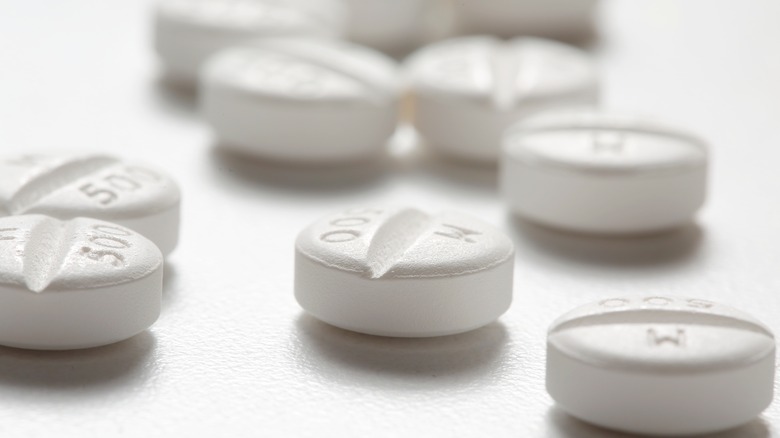What A Popular Diabetes Drug Can Do To Prevent Severe COVID
As time passes and we get further from the pandemic, it seems we continually discover more about COVID-19. Each step forward is uncovering new and sometimes surprising ways to help ward off death from those catching the virus, such as a recent study involving medication for diabetes.
Metformin was approved in 1994 by the U.S. Food and Drug Administration as a drug for diabetes, and it soon after took off in the U.S. (via a 2017 Diabetologia article). It is now the most prescribed medication of its kind worldwide. According to MedlinePlus, metformin is primarily used to treat Type 2 diabetes by helping control the amount of sugar released and absorbed into the blood. It can also increase the way the body responds to insulin to improve blood sugar levels.
Insulin is a hormone made in the pancreas and released when we eat to help regulate blood sugar use and storage (per the American Diabetes Association). For those with Type 2 diabetes, metformin is helpful because those who have the condition don't respond correctly to the insulin the body makes and therefore don't regulate glucose properly (via MayoClinic). People with Type 1 diabetes, on the other hand, don't make insulin and must take insulin injections to help manage their glucose. Therefore while metformin can provide glucose regulation improvements in just weeks for those with Type 2 diabetes, it isn't helpful for those with Type 1. But what can this glucose-regulating medicine for diabetes do for those with COVID-19?
Metformin has an anti-inflammatory effect
A recent study published in PLOS One involving 6,626 adults with Type 2 diabetes focused on the effects of metformin on COVID-19 based on previous findings in smaller studies that seemed to point to the diabetes drug having a positive impact on those at risk of the virus. The study confirmed previous findings that metformin use resulted in less severe COVID-19 outcomes, including reduced mechanical ventilation and death of patients.
Metformin has this impact for multiple proposed reasons, but the exploration was based on the drug's effect on other viruses. In an interview with the U.S. News & World Report regarding metformin, Dr. Carolyn Bramante, an assistant professor of medicine at the University of Minnesota Medical School noted "metformin also appears to have antiviral and anti-inflammatory effects, so in the 2010s researchers started testing it against other viruses such as Zika and hepatitis C."
On metformin's interaction with COVID-19, Dr. William Schaffner, medical director of the National Foundation for Infectious Diseases, explained to U.S. News & World Report, "The virus establishes itself and ... that provokes inflammatory response. And the inflammatory response we have learned is what really causes serious disease, because it causes collateral damage throughout the body." Based on these opinions and findings in this larger study, it seems that metformin could be used to help treat COVID-19. However, more studies need to be done to see if its reduction in severity will be as effective for everyone, as per the study.


